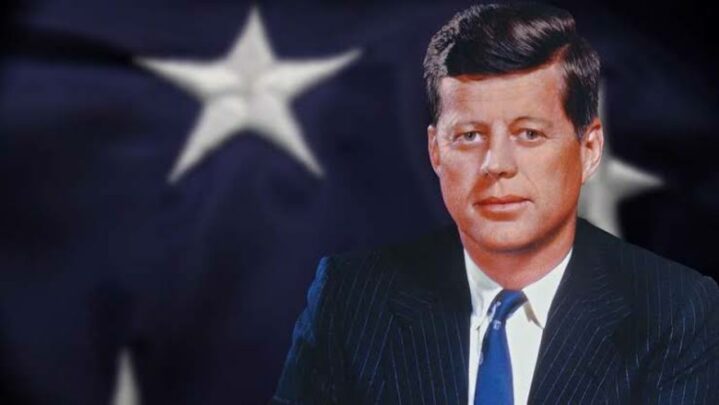Kennedy delivered the Commencement Speech at American University on June 10, 1963, barely six months before his death. The focus of his speech was peace. He called it “the most significant topic on the face of the world.” He knew about battle because he was a decorated officer who served in battle during World War II.
“What kind of a peace do I mean? What kind of peace do we seek? Not a Pax Americana enforced on the world by American weapons of war. Not the peace of the grave or the security of the slave.”
It was heralded as one of the most significant speeches of the twentieth century: a cry for peace in the world from a leader who realized how dangerously near America — and the rest of the world — had come to nuclear war. He acknowledged that nuclear weapons had given rise to a “new face of war.” He asserted, “Total war makes no sense in an age when great powers can maintain large and relatively invulnerable nuclear forces and refuse to surrender without resort to those forces. It makes no sense in an age when a single nuclear weapon contains almost ten times the explosive force delivered by all the allied air forces in the Second World War. It makes no sense in an age when the deadly poisons produced by a nuclear exchange would be carried by wind and water and soil and seed to the far corners of the globe and generations yet unborn.”
The Cuban Missile Crisis had brought Kennedy face to face with the Soviet Union just eight months before delivering this speech. He was aware that powerful, nuclear-armed nations may reach the brink of nuclear war, and he was also aware of the consequences of nuclear war for humanity’s future. “I talk of peace as the necessary rational end of rational men,” he explained.
Kennedy challenged us to consider our views toward peace. “Too many of us believe it is impossible,” he explained. “Too many people believe it’s impossible. However, this is a hazardous defeatist belief. It leads to the conclusion that war is unavoidable – that humanity is doomed – that we are enslaved by forces beyond our control.”
He recognized that there was no “magic formula” for achieving peace. “Genuine peace,” he contended, “must be the product of many nations, the sum of many acts.” It must be dynamic, not static, changing to meet the challenges of each new generation. Peace, after all, is a process – a way of problem-solving.” He also knew that maintaining peace necessitates endurance.
In his address, Kennedy provided sound advice. In the heart of the Cold War, he advocated for a reconsideration of the American approach toward the Soviet Union. “Among the traits shared by the peoples of our two countries, none is stronger than our mutual abhorrence of war.” He emphasized the Soviet people’s successes as well as their sorrow during World War II.
Everyone should read John F. Kennedy’s American University Commencement Address to be reminded that peace is a possibility worth fighting for. War, as Kennedy recognized, does not bring peace. The only way to peace is for people to live in peace. “No challenge of human destiny is beyond human beings,” Kennedy asserted. We think that man’s reason and spirit can overcome the seemingly unsolvable once more.” It is possible to achieve peace. It is within our grasp if we learn from our mistakes, challenge ourselves, and feel that this is our fate.
Keep reading successyeti.com





